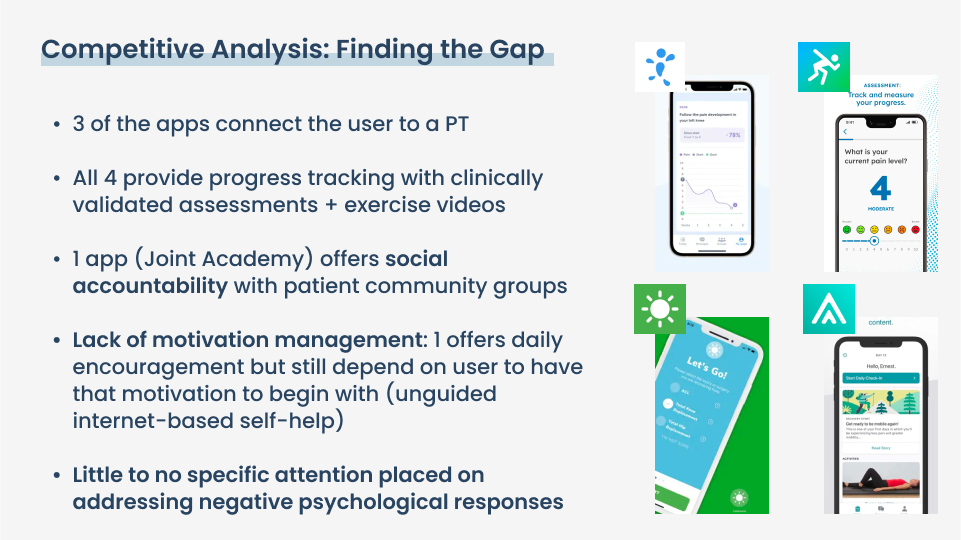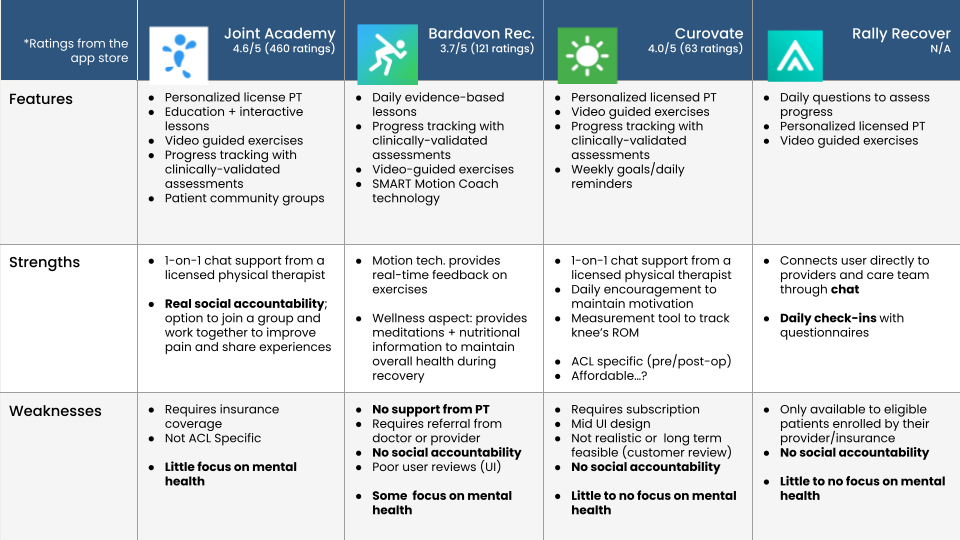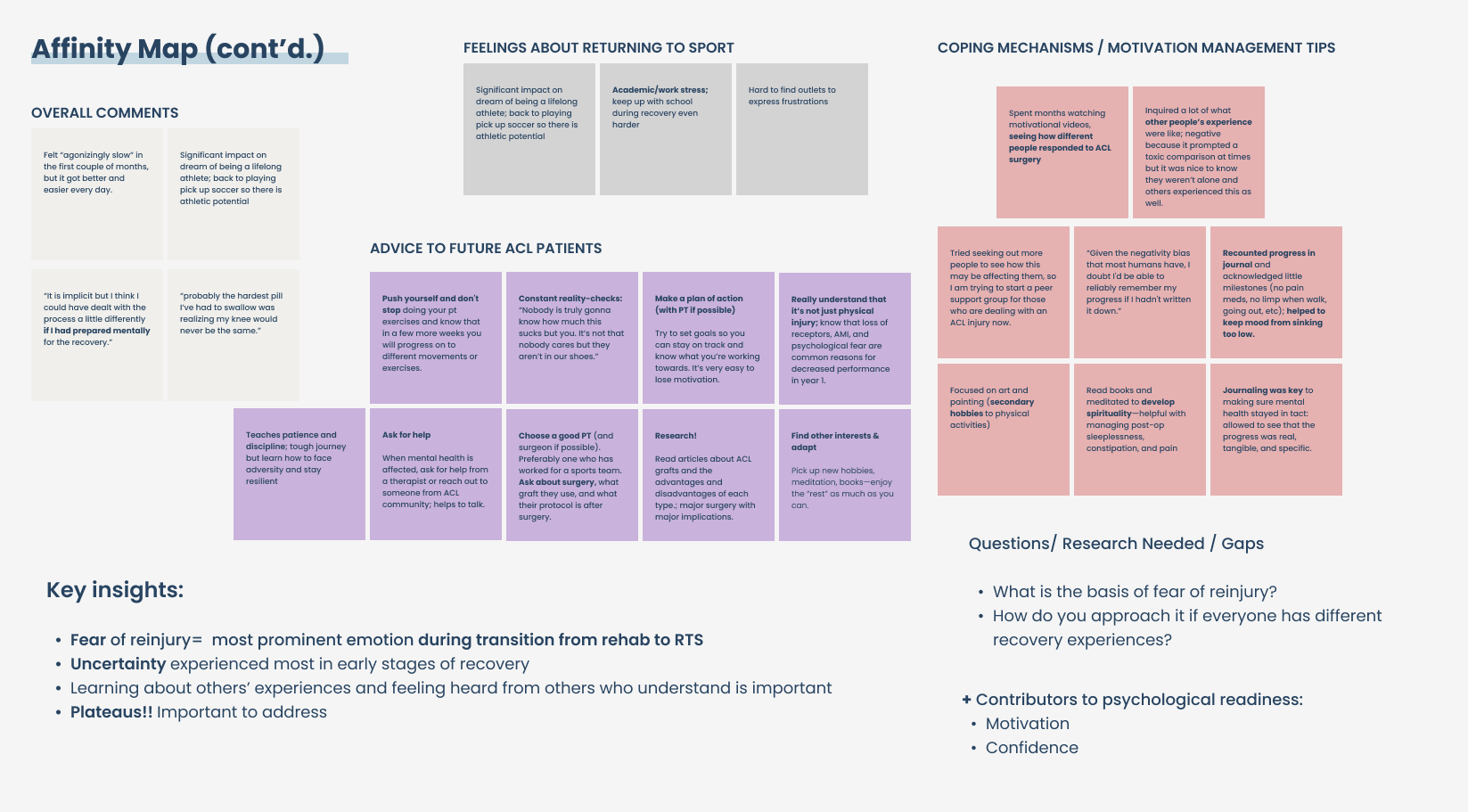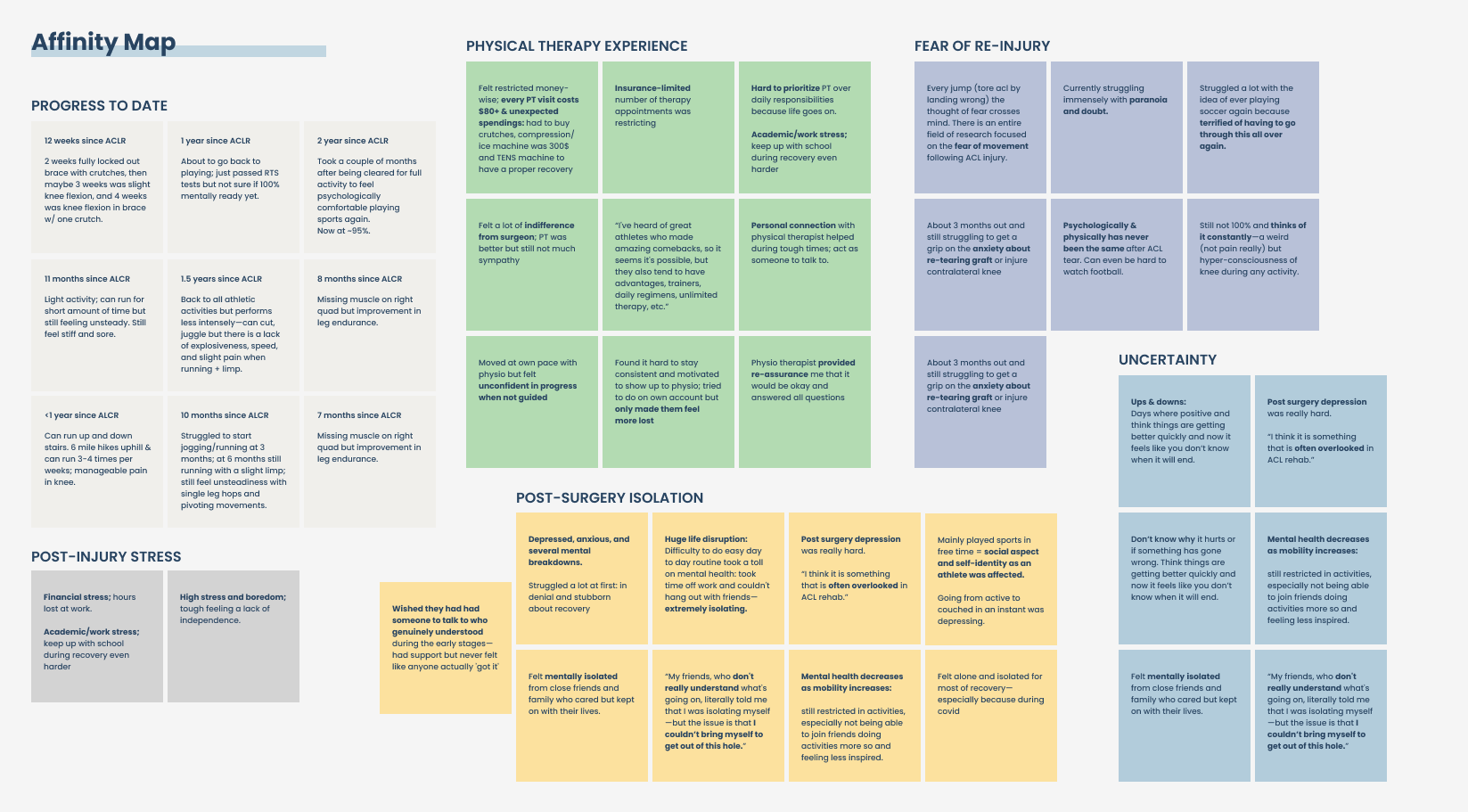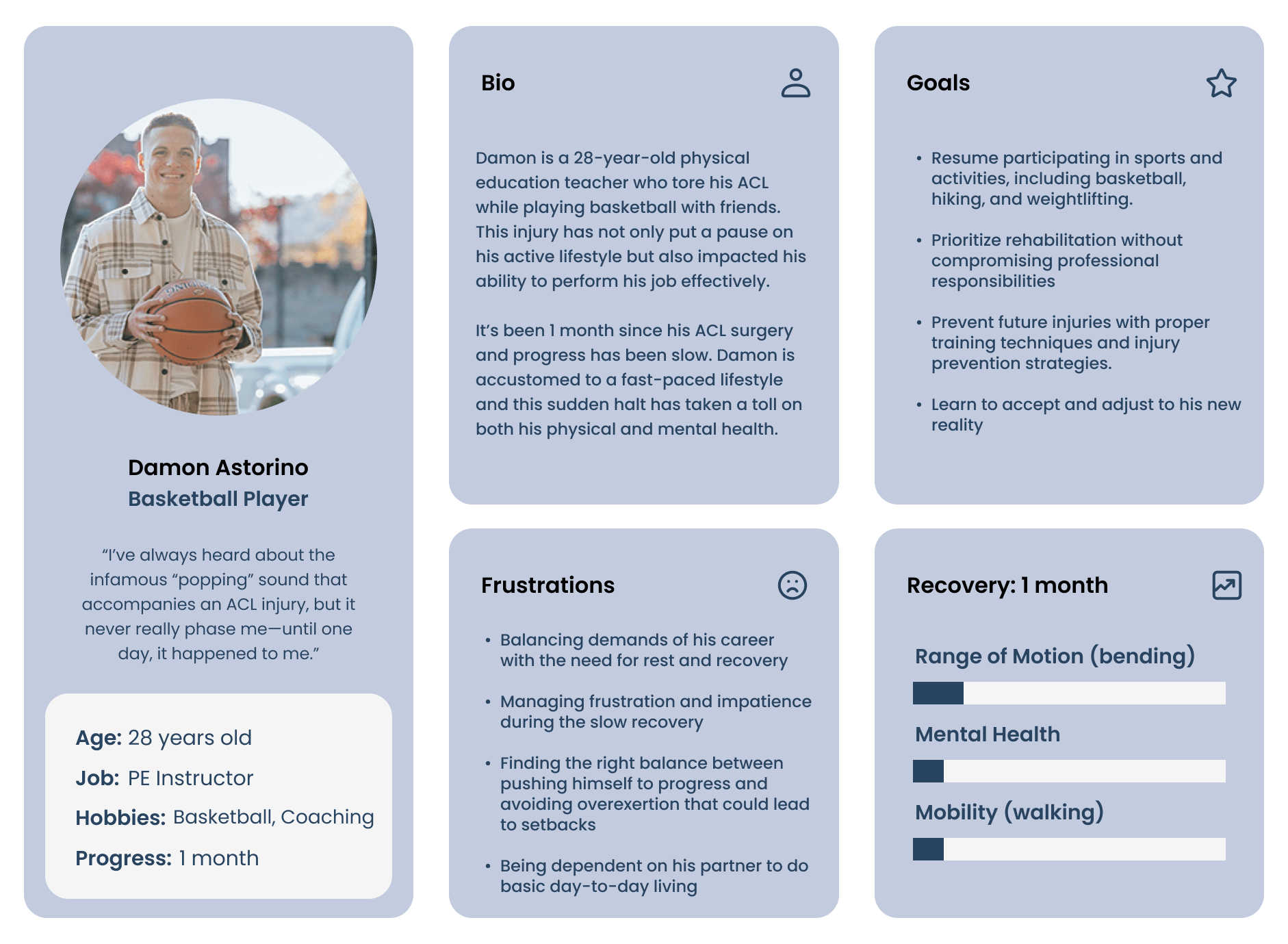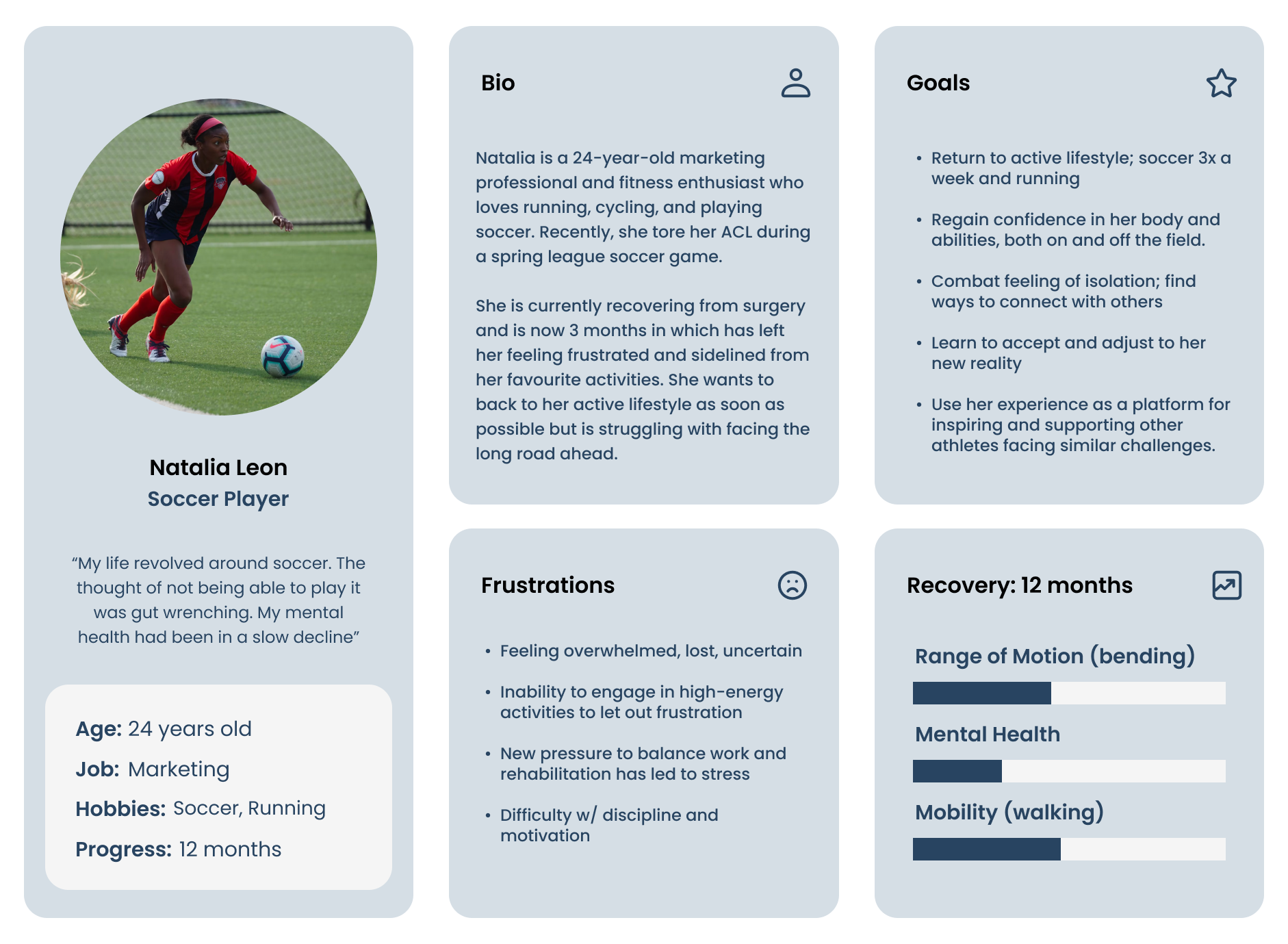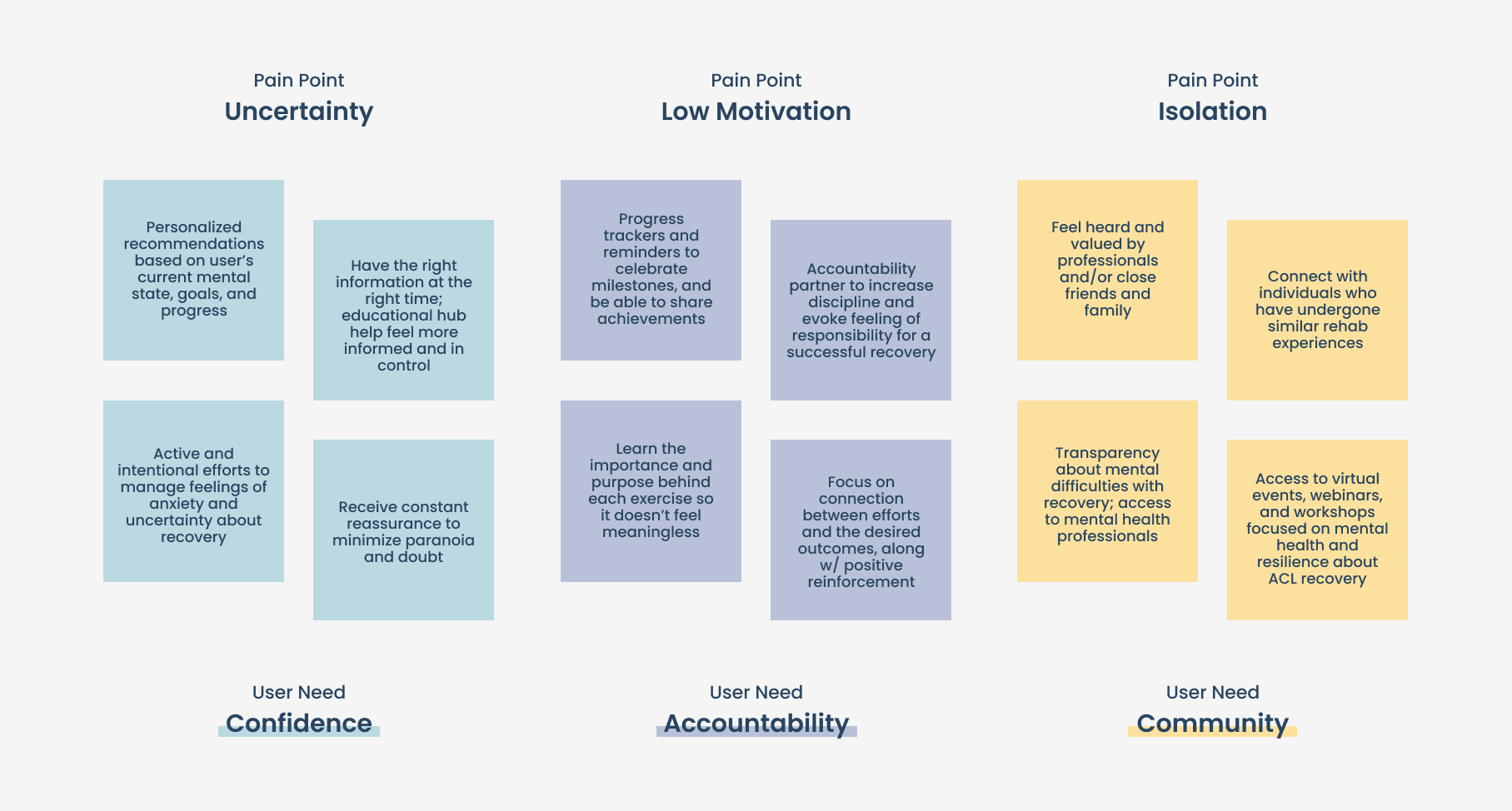ACLOGY
/ DELIVERABLES
Mobile App | Figma | Product Design | User Research | Usability Testing
User Interviews
Persona, Journey Maps
Product Concept & Wireframes
UI Design System
Clickable Prototype
Addressing the mental aspects of ACL injuries: a ux study
ACLOGY is a self-driven project dedicated to individuals recovering from an ACL tear (see here if you have no idea what I'm talking about). Based on firsthand experience and ethnographic observations, the goal was to help users identify and address adverse psychological reactions to injury so they can confidently return an active lifestyle.
/ Initial Problem Discovery
Why are return to sport rates so dissapointingly low despite the development of ACL rehab programs?
Only 60% of nonelite athletes return to their preinjury level of sport after ACL surgery.
Studies from the Arthroscopy, Sports Medicine, and Rehabilitation Journal revealed that ACL injuries entail psychological concerns such as uncertainty, fear, and reduced knee self-efficacy; and how such negatively charged affective feelings can influence treatment outcomes and patient satisfaction.
These findings called for a competitive analysis of the four most popular apps within the physical therapy space to see how (and if) they target the mental aspect of an ACL recovery. I found that almost none of them placed genuine attention on addressing fear or uncertainty.
/ Collecting Data from Representative Users
NEXT, I interviewed 9 people who underwent ACL surgery & have not returned to sport (yet).
/ The moment I realized the answer was in the question.
How might we help patients feel responsible for and confident about their recovery so they can return to sport without fear of reinjury?
8 of 9 interviewees experienced a plateau after returning to daily life
Trends in my affinity map showcased a strong correlation between uncertainty and failing to return to sport. After returning to daily life, interviewees expressed a lack of motivation to prioritize their recovery over other demands. As a result, their fear of reinjury is left unattended and the goal of returning to sport gets buried over time.
So, my one-sentence solution? Set a foundation in the early stages of recovery: build habits of accountability and self-awareness through active efforts to avoid build-up of negatively charged affective feelings.
3 major design improvements
based on user testing & feedback
Humanize app experience
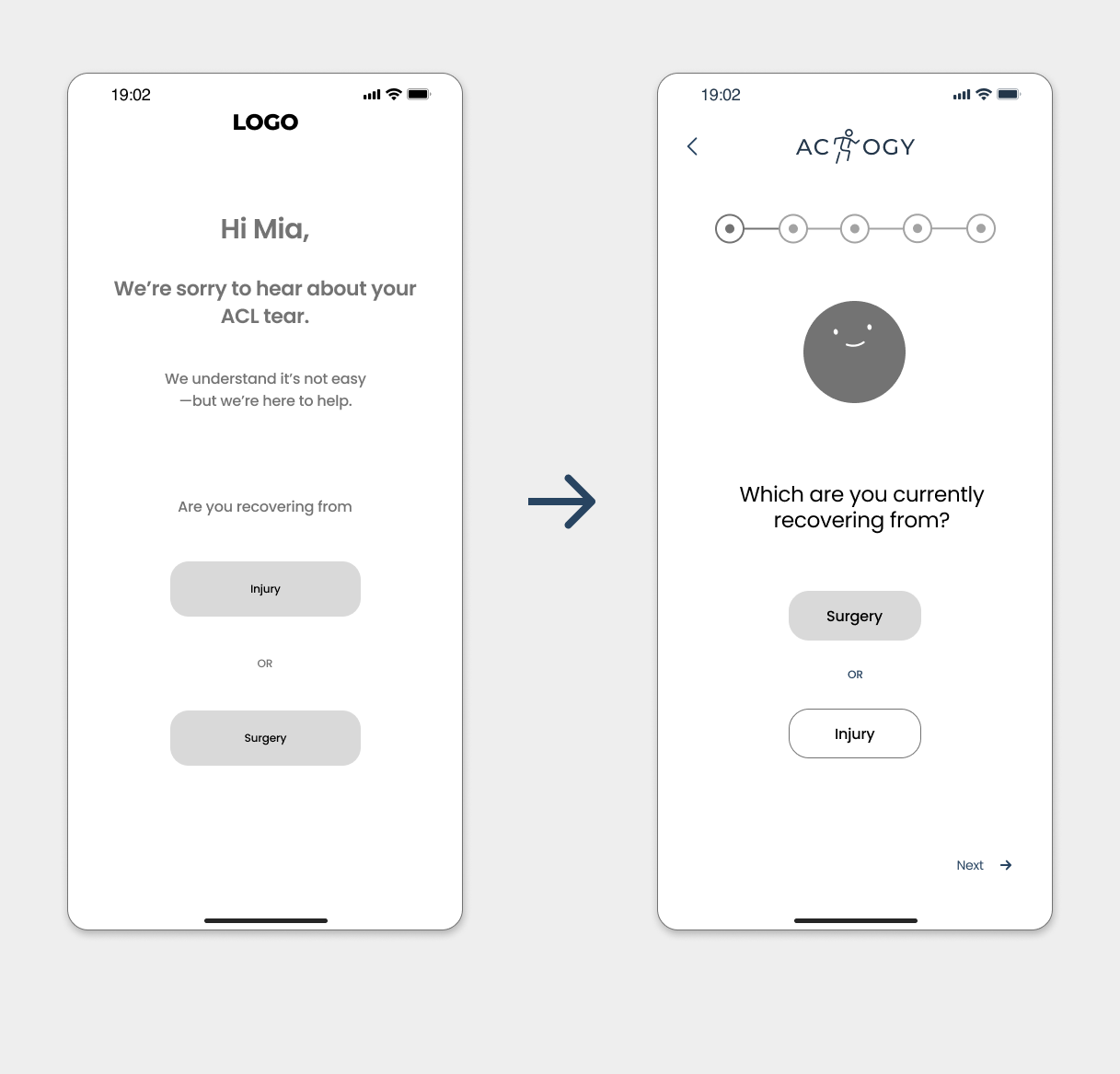
- Based on user feedback, personifying the support to guide the user throughout recovery seemed to evoke more empathy
- Increases emotional engagement; feel more understood and less alone in their struggles
- Offers interactive features such as conversations
- Make app experience more enjoyable and encourage regular use
Increase focus on mental
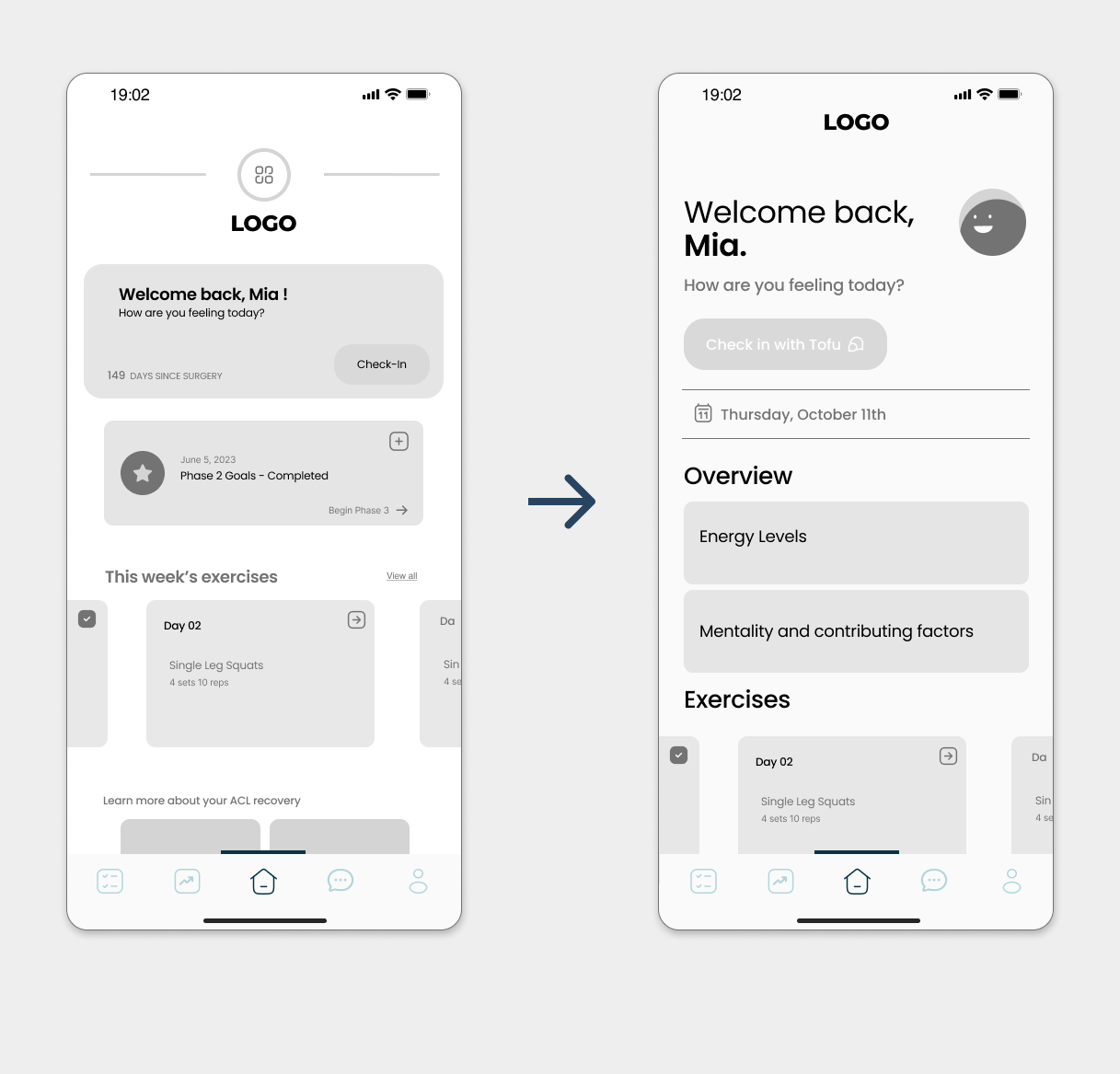
- User testing revealed that the initial homepage design was not prioritizing mental aspects enough
- Emphasis on goals and exercise should not minimize attention on mental health
- Switch to a more inviting mental check-in with the app's companion
- Overview of energy levels + mentality patterns so users can identify when they may need more support
Broadcast feed
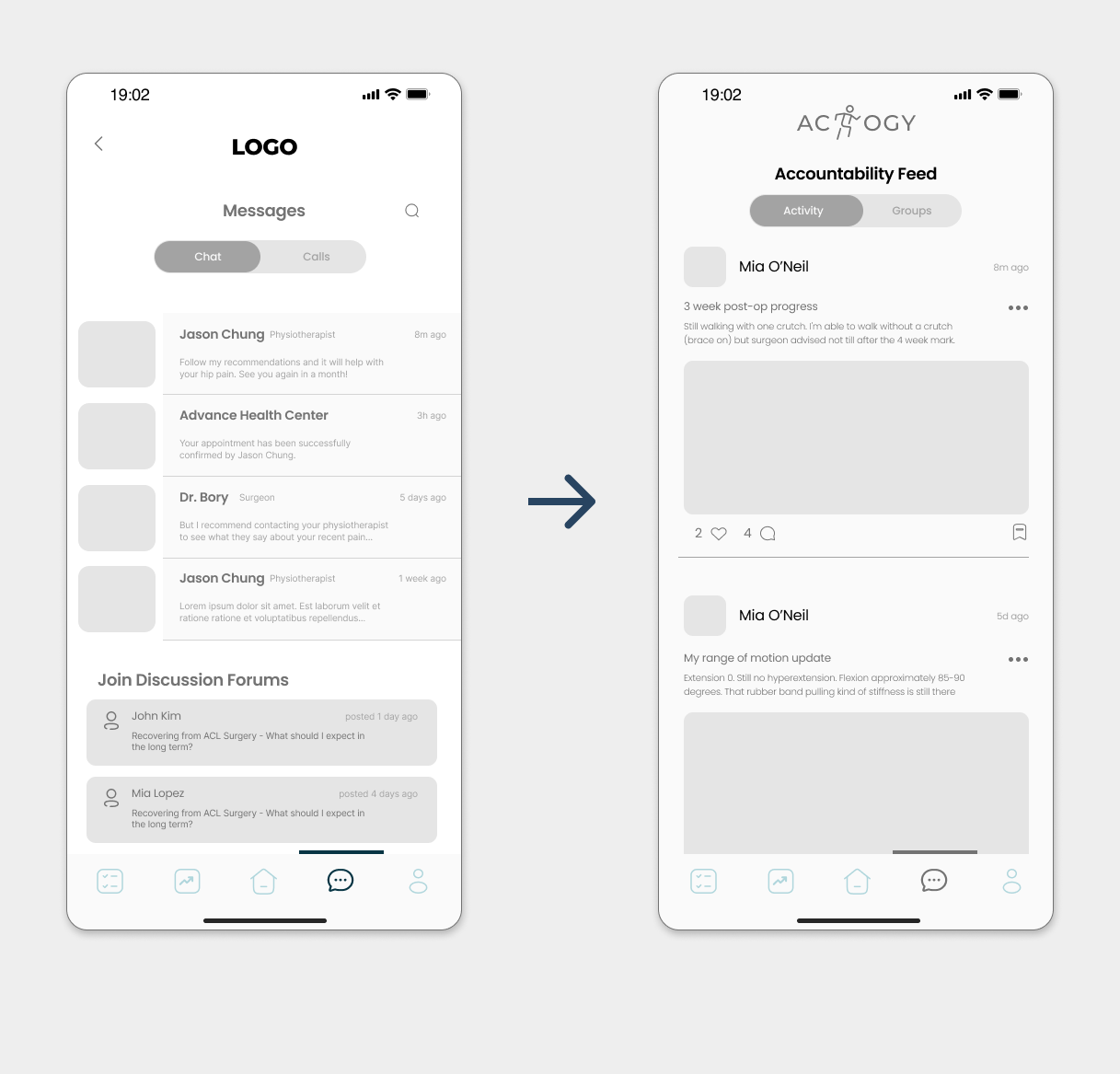
- To address the accountability aspect, feed feature to share and document recovery milestones
- Social media feeds encourage better behavior as appears more "public"
- Instant gratification of likes/comments to encourage consistency
- Support groups/discussion forms about mental health and rehabilitation tips
/ Key Screens
Design System & Final Prototype

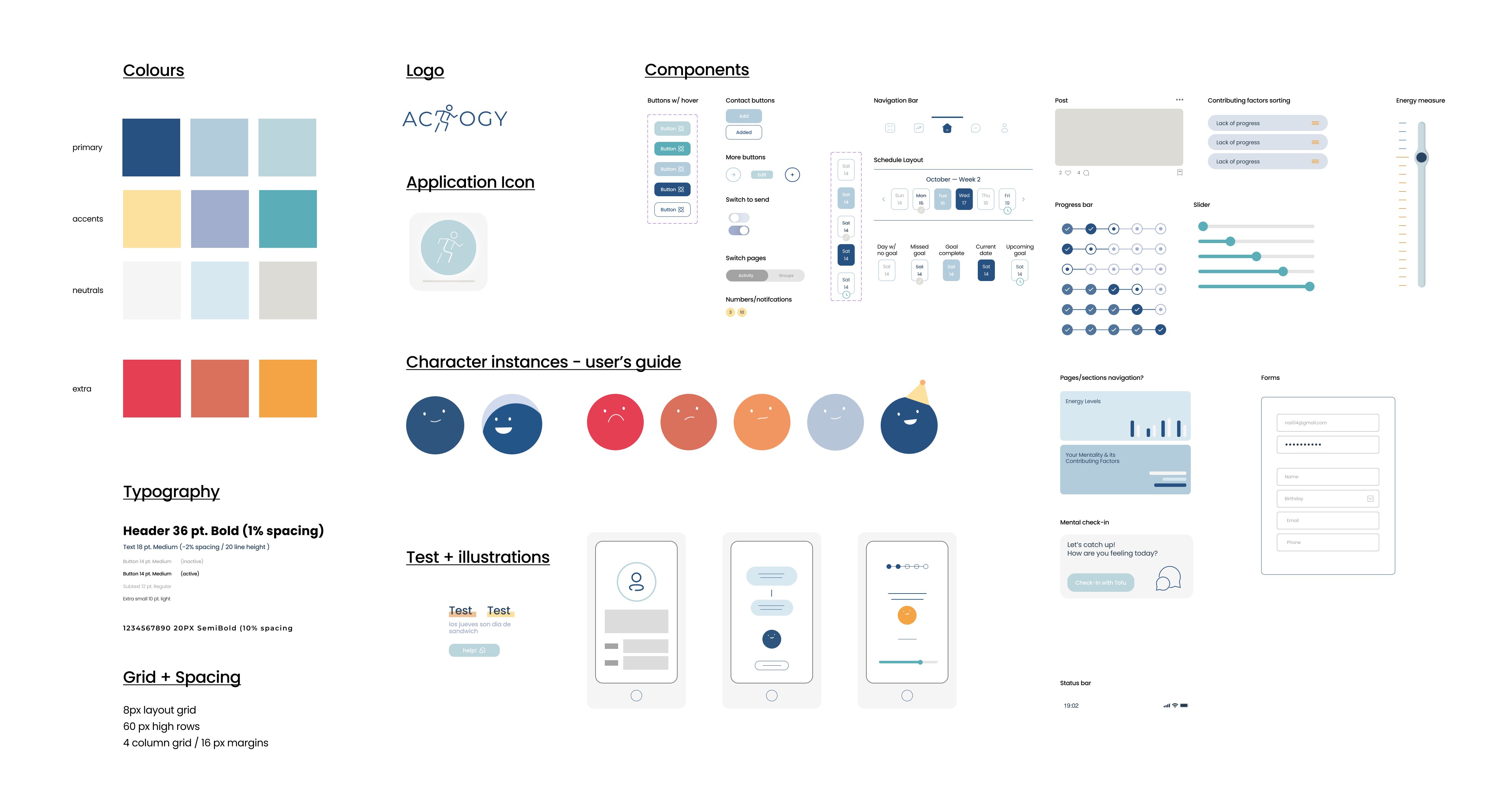
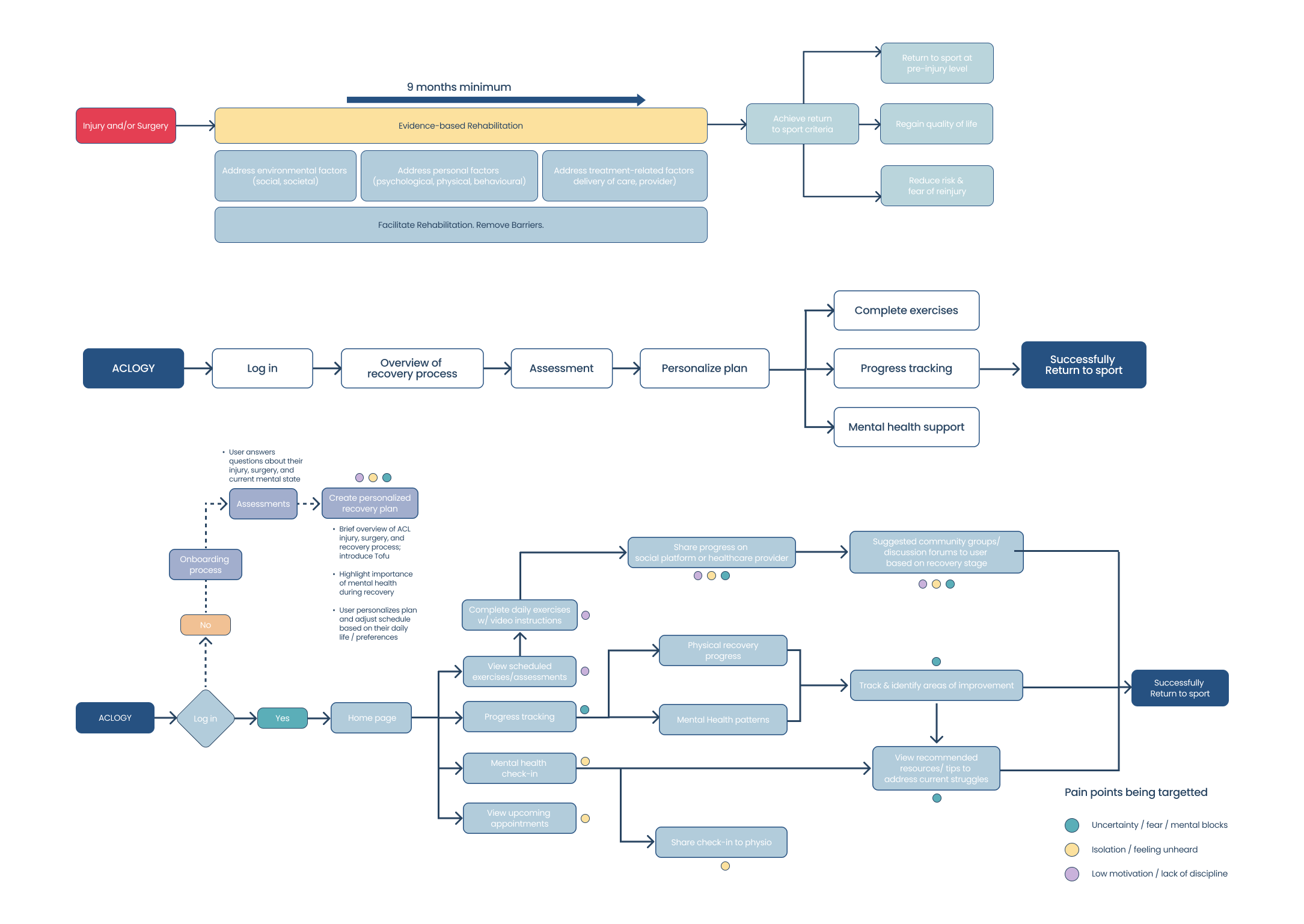
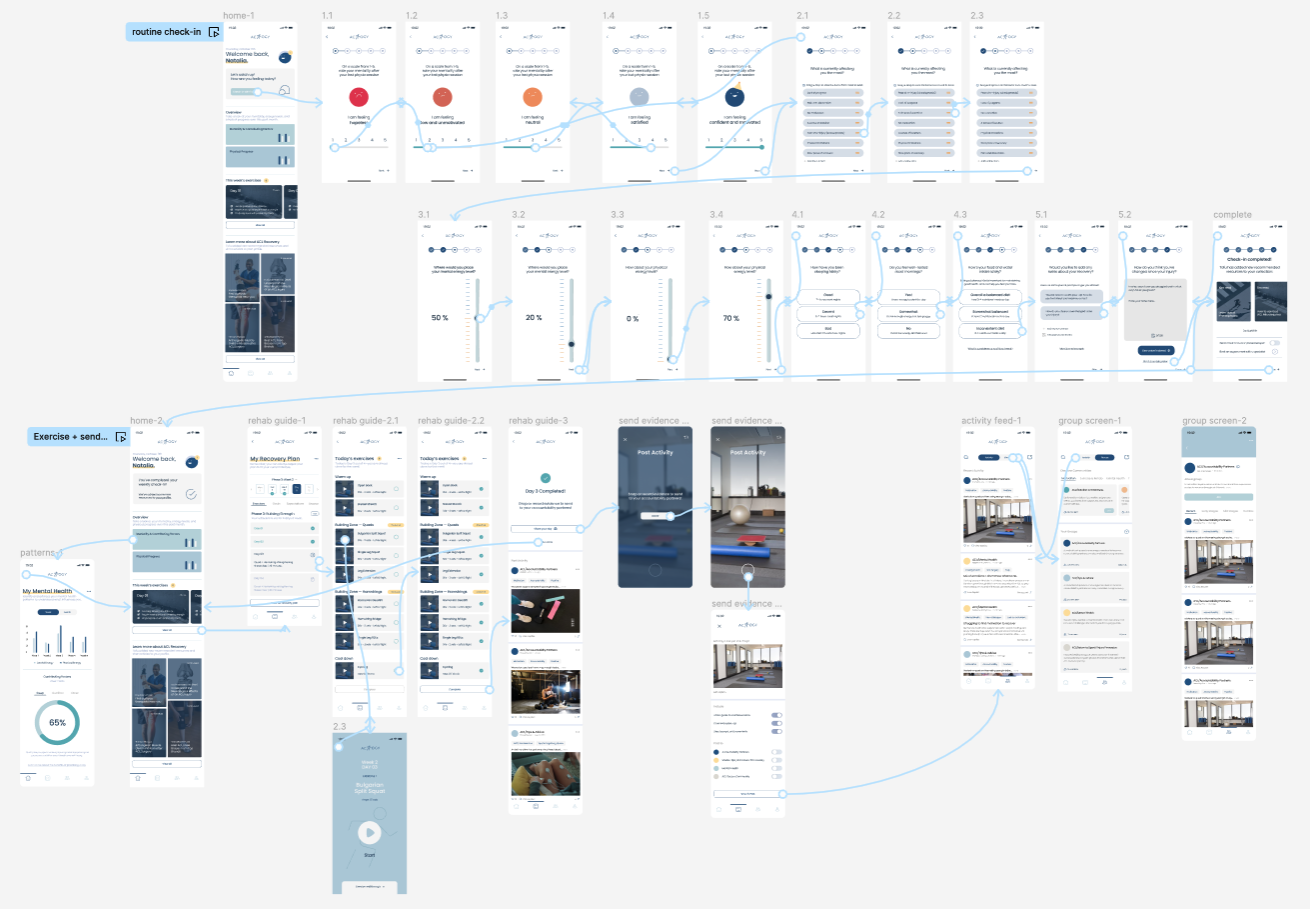
4 months & many iterations later...
My learnings
While working through this project, I spent over 1 month experimenting with Augmented Reality during ideation until feedback revealed it may be more of a hassle than help on a daily basis. Long story short, I learned that user testing is a very humbling experience because no matter how good I think my idea is, I am not the user. This project taught me to think and design with intention to ensure each decision provides value to the end-solution and to always. test. your. designs.
What's next?
The AR idea is not completely dead though! While I've taken a step back from this project, I do plan on circling back one day and further explore the barriers faced by individuals recovering from ACL recovery, and discover different opportunities to increase accountability (i.e. monetary consequences, gamification) or add more flexibility and increase the resources feature. I'd also revisit the visual design to better adhere to WCAG standards.


